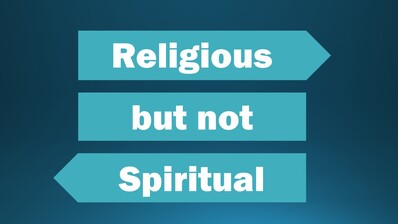Sunday, February 16, 2020
First Congregational Church of Cheshire
© the Rev. Dr. James Campbell
Matthew 5:21-37
“You have heard that it was said to those of ancient times, ‘You shall not murder’; and ‘whoever murders shall be liable to judgment.’ But I say to you that if you are angry with a brother or sister, you will be liable to judgment; and if you insult a brother or sister, you will be liable to the council; and if you say, ‘You fool,’ you will be liable to the hell of fire. So when you are offering your gift at the altar, if you remember that your brother or sister has something against you, leave your gift there before the altar and go; first be reconciled to your brother or sister, and then come and offer your gift. Come to terms quickly with your accuser while you are on the way to court with him, or your accuser may hand you over to the judge, and the judge to the guard, and you will be thrown into prison. Truly I tell you, you will never get out until you have paid the last penny.
“You have heard that it was said, ‘You shall not commit adultery.’ But I say to you that everyone who looks at a woman with lust has already committed adultery with her in his heart. If your right eye causes you to sin, tear it out and throw it away; it is better for you to lose one of your members than for your whole body to be thrown into hell. And if your right hand causes you to sin, cut it off and throw it away; it is better for you to lose one of your members than for your whole body to go into hell. “It was also said, ‘Whoever divorces his wife, let him give her a certificate of divorce.’ But I say to you that anyone who divorces his wife, except on the ground of unchastity, causes her to commit adultery; and whoever marries a divorced woman commits adultery.
“Again, you have heard that it was said to those of ancient times, ‘You shall not swear falsely, but carry out the vows you have made to the Lord.’ But I say to you, Do not swear at all, either by heaven, for it is the throne of God, or by the earth, for it is his footstool, or by Jerusalem, for it is the city of the great King. And do not swear by your head, for you cannot make one hair white or black. Let your word be ‘Yes, Yes’ or ‘No, No’; anything more than this comes from the evil one.
OK, wait. Did Pastor Alison just say, “The word of the Lord?” And did you really just reply, “Thanks be to God?” Were you kidding? What part were you thankful for: threats of hell fire, the restrictive teaching about divorce, or a guide to self-mutilation?
This passage makes me think of my good friend Dean. Dean is a Catholic and loves to tease me about what he sees as Protestantism’s overdone devotion to the Bible, which he often refers to as “that troublesome book.” We Protestants do have the Bible as the centerpiece of our faith. “Scripture alone” or “Sola Scriptura” is one of the principles of the Protestant Reformation. It’s part of what makes us Protestants. But after having heard today’s Gospel lesson, you might be tempted to agree with Dean, that the Bible sometimes is a troublesome book.
Believe it or not, these strange words are actually a continuation of the Sermon on the Mount. Just a few moments before, Jesus had said gracious, marvelous, easy-to-preach-on things like “Blessed are the peacemakers…” and “You are the light of the world.” But then he says this!
So what is going on here? And how are we modern people to understand it? Well, context is everything, as is so often the case. These strange words are actually introduced and framed by verse 20, which we heard last week. Jesus said: “For I tell you, unless your righteousness exceeds that of the scribes and Pharisees, you will never enter the Kingdom of Heaven.” What follows is Jesus explaining what it means to be inwardly righteous as opposed to just outwardly religious.
This passage opens with what scholars call “The Antitheses of Jesus.” Jesus makes a statement based on a thesis of the Law and then provides an antithesis. For example: “You have heard it said, ‘You shall not murder.’ And then the antithesis: “But I say to you, if you are angry with a brother or sister, you will be liable to judgment.” “You have heard it said, ‘You shall not commit adultery’ but I say to you if you even look at someone with lust, the adultery already lives in your heart.”
Lots of folks interpret these antitheses as new teachings from Jesus that somehow supersede the Law. But that assumption leads to the slippery slope of assumed Christian superiority over Judaism. But remember that Jesus said he came to fulfill the Law, not abolish it. So I think that what’s really going on here was something very common amongst the Jews of Jesus’s day. You see, the use of thesis/antithesis was not outside some forms of rabbinic interpretation and practice. Jesus was searching for and unearthing the truth that often lives in, under, and around the words on the page. Jesus engaged in a lively conversation with Scripture, not just because he was Jesus, but because he was a faithful Jew.
But having a conversation with Scripture is not how most of us think of the Bible. When I was a kid there was a popular bumper sticker that my grandparents proudly displayed on the bumper of their Cadillac. It proclaimed: “God said it. I believe it. That settles it!” In other words, the Bible is not a conversation. It’s an order from headquarters! Therefore, we did not engage in historical or literary or social criticism. And we certainly never thought to add anything to the conversation.
But I don’t think that’s how Jesus read the Bible. Jesus seemed to know that the truth is found in that meeting place between the words and human hearts and imaginations. Jesus’s interpretation of Scripture was very people-focused.
What do I mean? Well, consider this: Jesus brings up the law that forbids adultery. But he doesn’t just repeat it and tell the people they should obey it. Instead Jesus looks for something deeper and more transformative than just keeping your clothes on. Jesus makes the astute and helpful observation that our deceits actually begin long before the deed is executed. Jesus names the fact that an unchecked thought often finds a place to nest in our hearts and minds, long before it ever destroys lives.
And then to make sure the people remembered this teaching, Jesus employed a common rhetorical device from his time and place. It’s called the rhetoric of excess - a purposeful use of irony and humor and exaggeration to drive the point home. Of course he didn’t really want folks to pluck out their eyes or cut off their hands. But he did want them to remember what he said. And his colorful language did the trick.
So what about what Jesus said regarding divorce? Where is the people focus there? It seems like he’s just being a hardliner. --The Law of Moses taught that all a man had to do was give his wife a certificate of divorce and he could be done with her. In a patriarchal society, this left all the power in the hands of the men. And since divorced women were damaged goods, unable to support themselves, they were often driven into prostitution just to survive. So when Jesus said that divorce should be avoided at all costs, it was the vulnerable members of society that he had in mind. In 2020, his words might strike us a restrictive and unenlightened, without nuance or understanding. But if you were a woman in the crowd that day, knowing that destitution might be just around the corner when your husband was having a bad day, you probably heard those words as life giving and life preserving.
These are just a few examples of how Jesus read the Bible in conversation with it. But for the most part, we don’t do that. We have been taught to respect this book, but we haven’t been taught to engage it with our whole selves. We’ve been taught not to question it and therefore, when life seems to contradict it, we have been forced to ignore it. But it doesn’t have to be that way. A lively conversation with this book can transform your understandings of God and the world and even yourself.
So how can you get started? Well, let me offer some quick bits of advice for anyone who needs them. First of all, don’t start at the beginning. This is not a novel. It’s a collection of 66 books, in many different literary genres, written over thousands of years by multiple authors. So instead, start small. Read one of the Gospels. Mark is the shortest and the earliest. Or read one of St. Paul’s letters. Or read the Psalms. But only bite off as much as you can chew on any given day. If that’s only one verse, that’s fine.
Number two: follow Jesus by reading the Bible as a conversation. In other words, don’t discount your own thoughts and questions. If something strikes you as odd or untrue, make a note of it. If you don’t like it, argue with it. Arguing with Scripture is an old and holy tradition through which the truth can emerge. And don’t worry - there won’t be any lightening bolts aimed at your head because you question or dislike what you read.
Number three: take your own interpretations seriously. Don’t discount your own experience of life as you read about the lives of others in the pages of this book. The Bible is largely about how humans just like us experienced God. But you have experienced God too. How does your experience help you understand what you’re reading?
And finally – and this one is really important - always read Scripture through the lens of love because God is love. When you read something strange or difficult, ask yourself: how does this passage help me to understand the greatest commandment - to love God and your neighbor as yourself? How does this passage make me a more loving and generous and kind person? And if it doesn’t, then just move on, and come back to it later.
So, back to my friend Dean and his comment that the Bible is a troublesome book. He’s right, you know, because actually engaging the words on the pages of this book, mixed in with our own experiences of life and love, hope and longing, will not leave us content to stay where we are. The living Word of God will call us toward the transformation of ourselves and the world. And that is troublesome, but in the best possible way I know.



 RSS Feed
RSS Feed